
Culture
12:23, 18-Apr-2019
Chinese comedians: It's the world's 'best' job, in spite of poor pay
Updated
13:13, 18-Apr-2019
Wang Le, Wei Tianyao
05:57
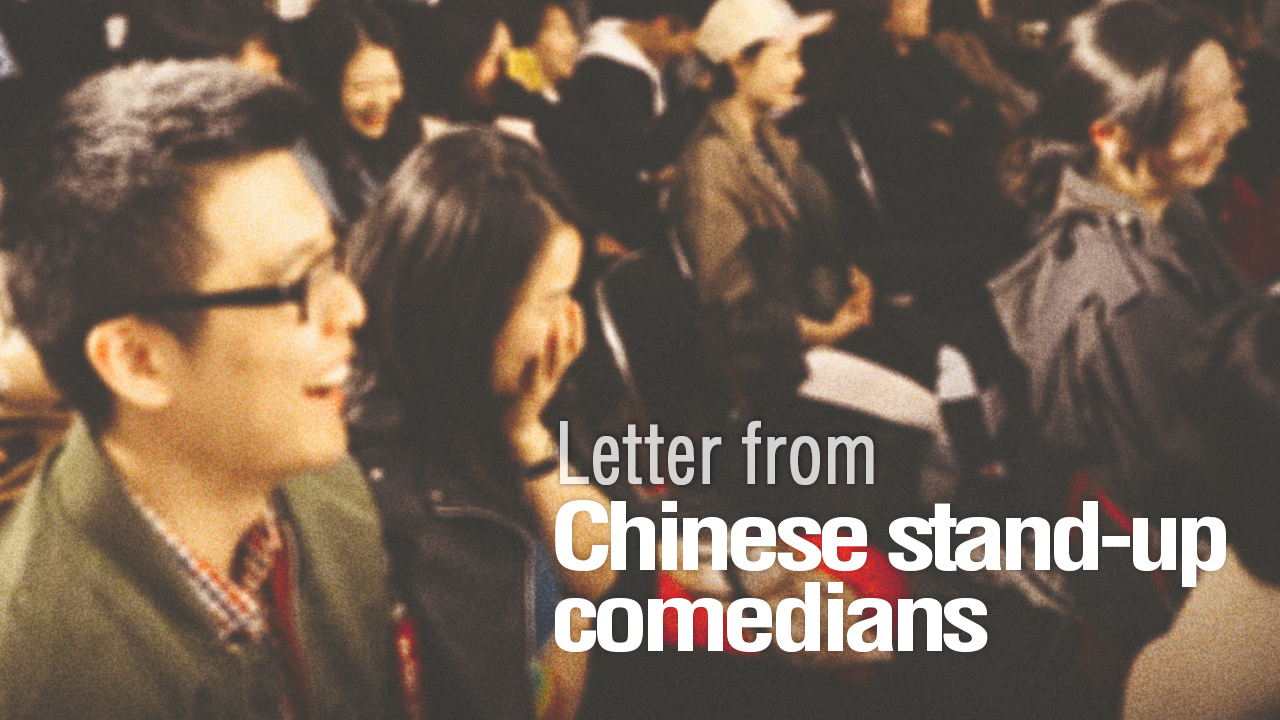
When Mark Twain took his comedy tour around the world to pay off his debts in 1895, he might have never thought that stand-up comedy, the form of stage art that originated in the U.S., would take roots in China over a century later.
Still at a very early stage, the industry of stand-up comedy has been taking off in major Chinese cities including Beijing, Shanghai and Guangzhou since the first comedy club in the Chinese mainland was established in Shenzhen, southern Guangdong Province in 2009.
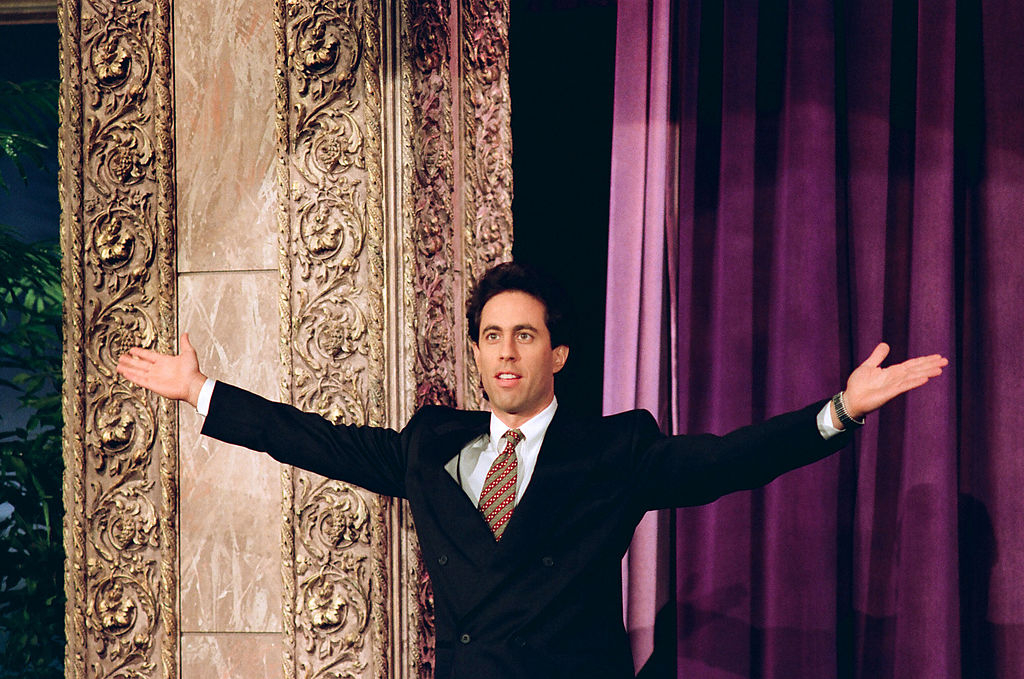
Western stand-up comedians including Jerry Seinfeld have attracted a lot of fans in China. /Photo via Gettyimages
Western stand-up comedians including Jerry Seinfeld have attracted a lot of fans in China. /Photo via Gettyimages
Western stand-up comedians have inspired many Chinese youngsters to have their go at the art. Names of Dave Chappelle, Jim Jefferies, Jerry Seinfeld, Russell Peters, Ellen DeGeneres, etc. are frequently referred to when Chinese stand-up comedians speak about how they joined the industry in the first place. Comedy show programs such as “Roast Convention” also make it known to the Chinese audience.
However, a well-acknowledged fact for Chinese stand-up comedians is that it is almost unrealistic to earn a living by solely doing it in China. As a result, most Chinese comedians have another job or source of income. Among them, there are English teacher, lawyer, journalist, civil servant, salesperson, start-up founder, etc.
Why did they choose this profession?
"It's the best job in the world," said Wufan, a stand-up comedian and dad of a four-year-old.
While making people laugh on the spot is regarded by many as a source of a sense of achievement, the urge of self-expression is commonly found among Chinese comedians.
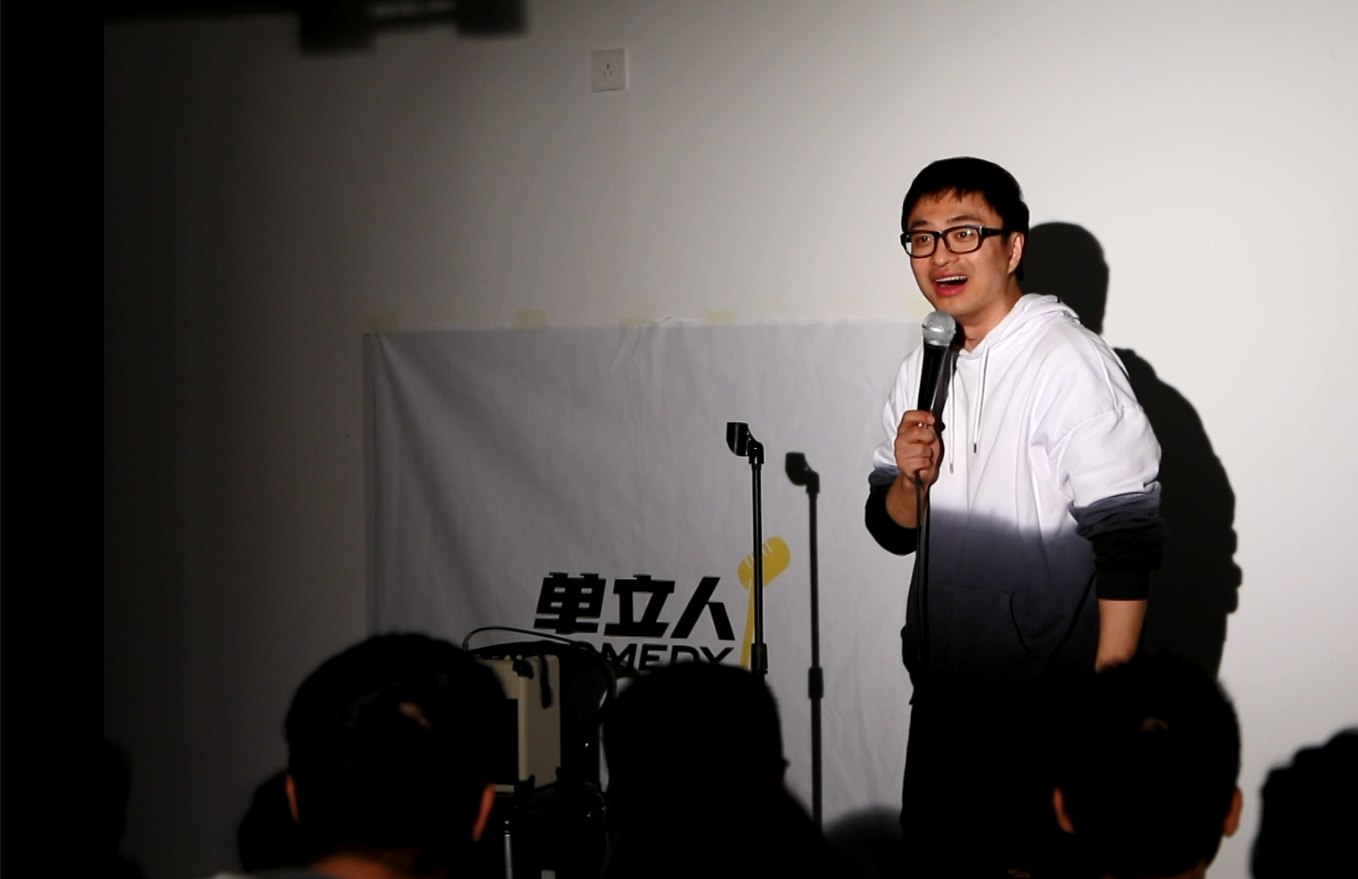
Liu Yang is a comedian and an English teacher. /CGTN Photo
Liu Yang is a comedian and an English teacher. /CGTN Photo
Liu Yang, who has another job as an English teacher, said the urge to get his thoughts through to the audience has been keeping him on the stage for years.
Zhao Siqiang, a young journalist with two-year working experience, told CGTN Digital that the comedy stage attracted him with the space he was allowed to create and express, as everything presented on the stage is justified by itself.
The sense of freedom was also shared by Tony Chou, one of the earliest Chinese stand-up comedians and few who are able to perform in both Chinese and English. "My inner voice could be heard by other people and really make fun of them so that I could have a personality. That's kind of freedom to me.” He told the BBC in 2015.
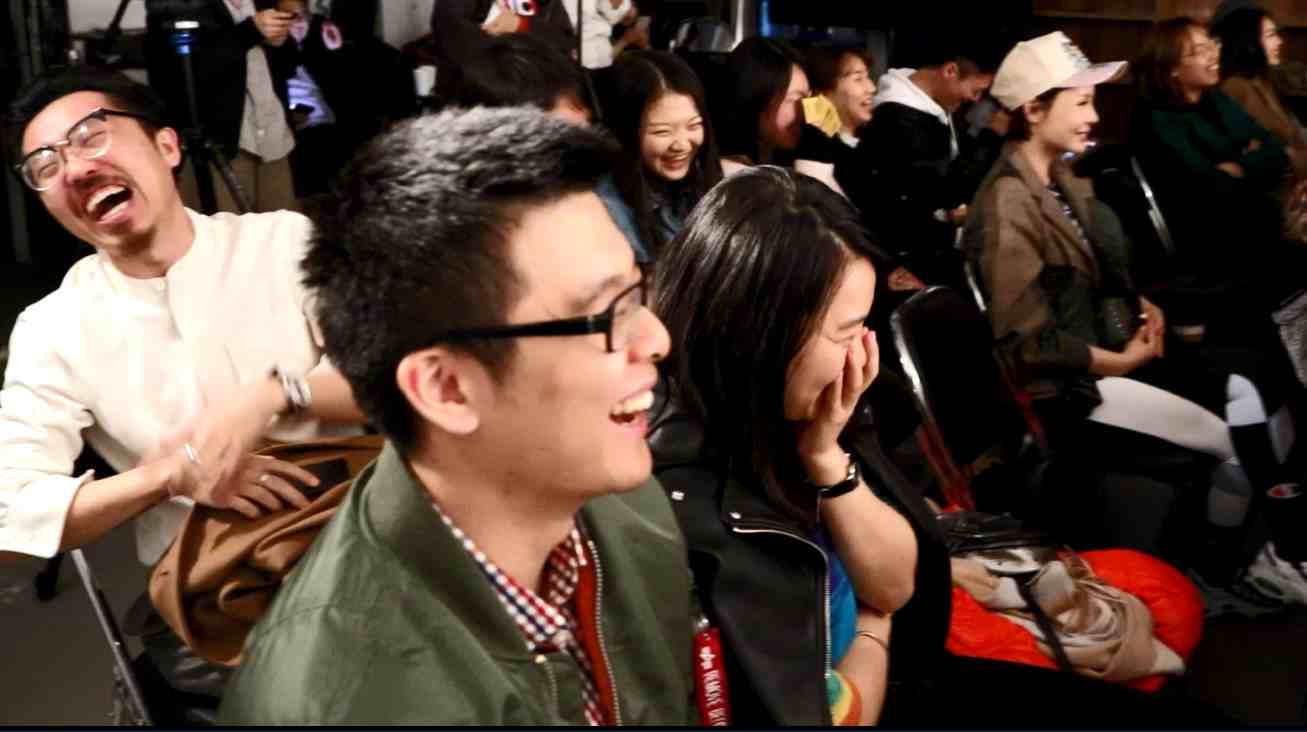
Comedy shows are popular among the young generation. /CGTN Photo
Comedy shows are popular among the young generation. /CGTN Photo
What are they trying to express?
Most of the Chinese comedians have their materials from daily life – a neighbor who has annoying pets, relatives who keep poking around one's relationship status during the Spring Festival, a couple kissing in public neglecting everyone around them.
The production of a joke starts from something that triggered strong emotions from within, mostly negative, such as anger, confusion, frustration, awkwardness. They have to understand their thoughts and feelings at that moment. Then there is the process of making them fun through selection, exaggeration, creation, and improving them by practicing in front of audiences again and again.
Changes will be made to the original stories during the process, but the emotions and ideas in their bits are real, said Liu Shou, who is also doing administration work in a company.
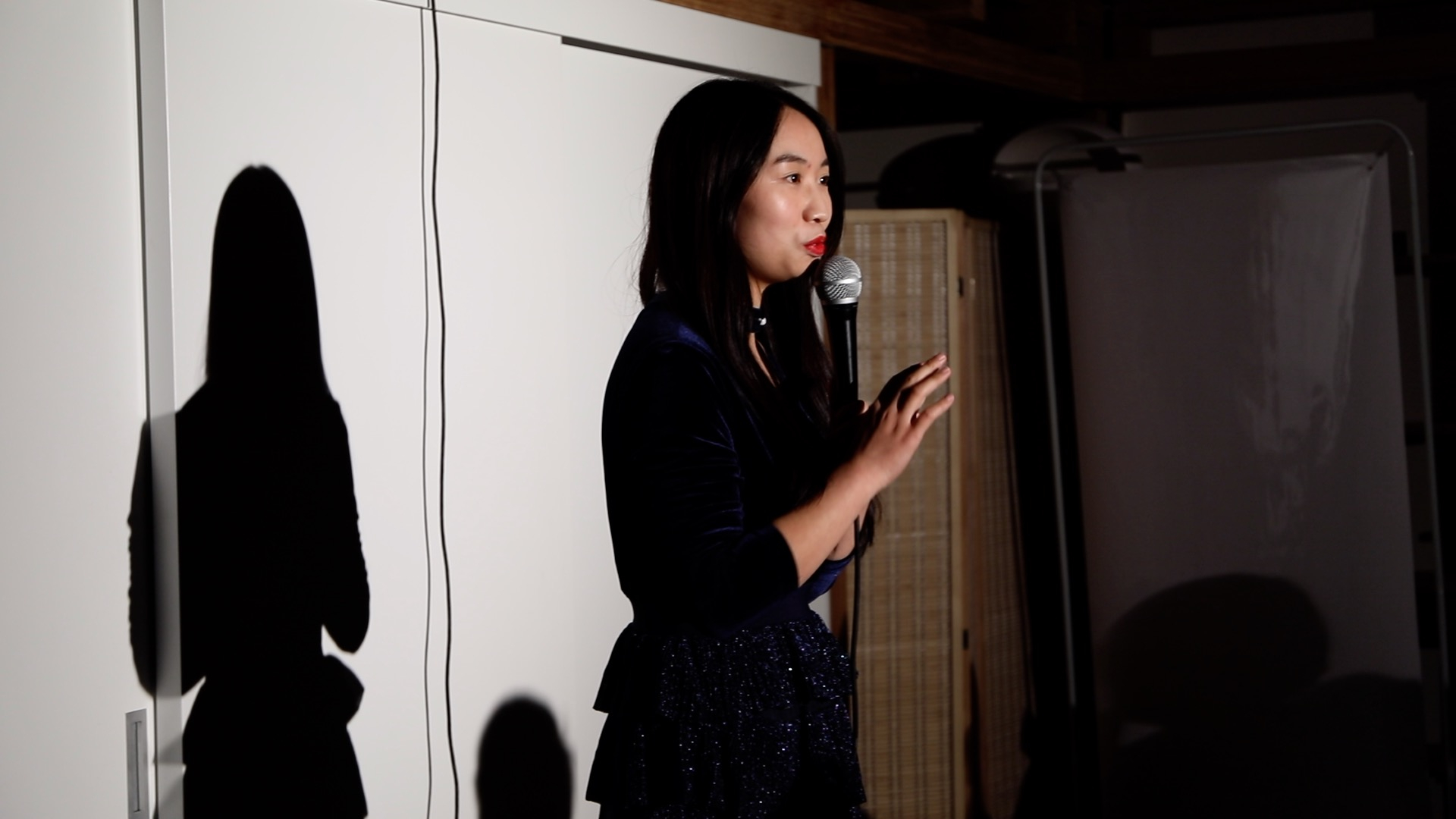
Xiao Lu is on stage. /CGTN Photo
Xiao Lu is on stage. /CGTN Photo
But being real cannot always be accepted. As many audiences step into a show as first timers, some get offended by certain jokes. Xiao Lu, one of the few female comedians and a lawyer, said one of her audience stood up accusing her of failing to understand motherhood after she told a joke about the labor of raising a child.
How could stand-up comedy be therapy?
"I only started to like myself after I became a stand-up comedian," said Xiao Lu.
American Judy Carter in her book "The Comedy Bible" described the art as "a lot cheaper" therapy. As most bits come from unpleasant experiences, creating them and telling them to the audience may just be like therapy.
Wu Fan said people's laughter made him feel he was understood by a group of friends who just heard about what happened in his life.
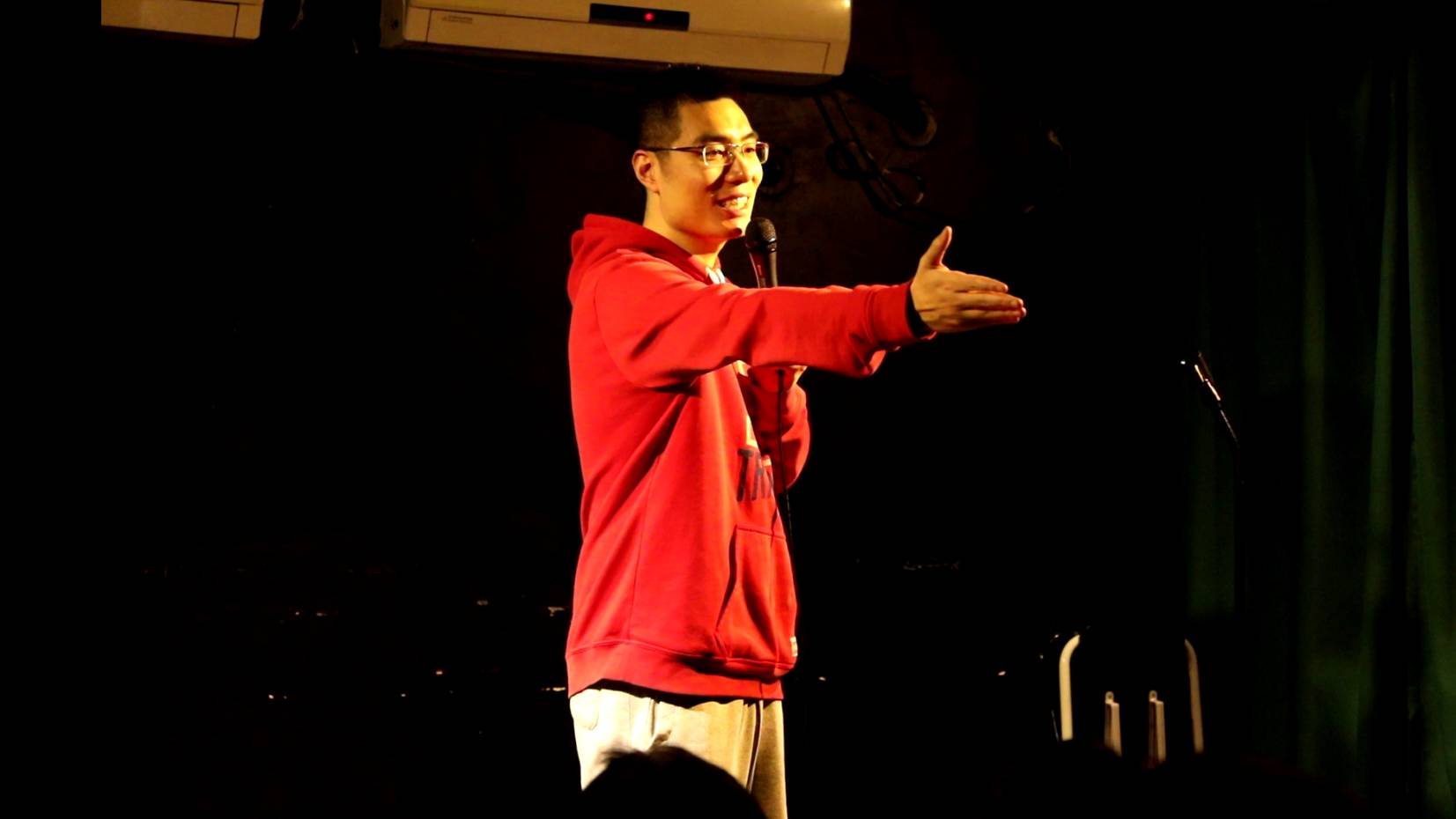
Zhou Qimo is one of the few full-time Chinese stand-up comedians. /CGTN Photo
Zhou Qimo is one of the few full-time Chinese stand-up comedians. /CGTN Photo
Zhou Qimo, one of the few full-time comedians and champion of China's national stand-up competition told CGTN Digital that performing on the stage helps comedians to let out bad feelings.
"When bad things happen, I know at least I can turn them into something good on the stage," He said.

SITEMAP
Copyright © 2018 CGTN. Beijing ICP prepared NO.16065310-3
Copyright © 2018 CGTN. Beijing ICP prepared NO.16065310-3